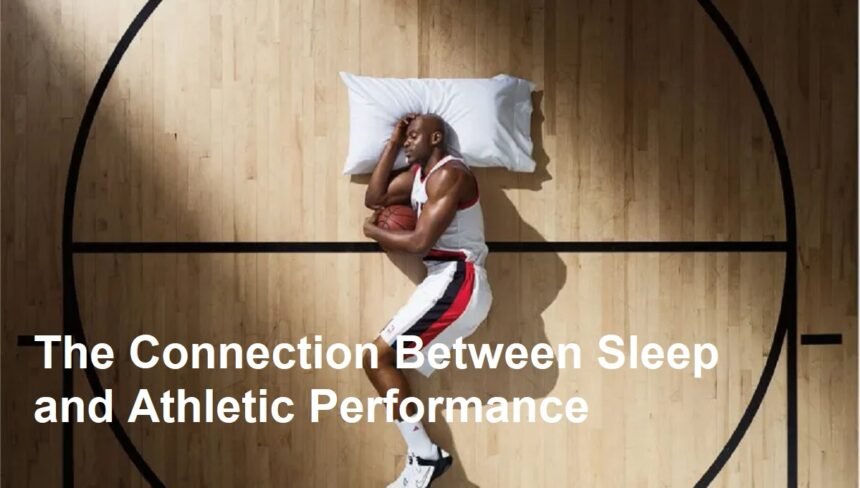Introduction
Every athlete knows the importance of training, nutrition, and discipline. But one of the most overlooked performance enhancers is something we all do every night—sleep.
The connection between sleep and sports is undeniable. From muscle repair to mental focus, good sleep can make the difference between a winning performance and a frustrating loss. Yet, many athletes fail to give sleep the same priority as workouts or diet.
Let’s explore why sleep quality is critical for athletic performance, how it impacts recovery, and what you can do to optimize your rest.
Why Sleep Matters in Sports Performance
The Science of Sleep for Athletes
During deep sleep, the body releases growth hormone, which is vital for muscle repair and recovery. This is why recovery for athletes heavily depends on sleep. Without enough hours of quality rest, your body simply doesn’t rebuild as efficiently.
Energy Levels and Endurance
Poor sleep reduces glycogen storage and lowers energy availability. That means shorter stamina, slower reaction times, and overall poor sports performance.
Mental Sharpness
Sports are as much about the mind as the body. Decision-making, focus, and reaction times are all impaired when sleep quality is low.
Recovery for Athletes: Why Rest Is Training Too
Muscle Repair and Growth
When you sleep, your muscles recover from the microtears caused during workouts. Adequate sleep ensures faster repair, leading to strength gains over time.
Immune System Boost
Lack of sleep increases the risk of illness. For athletes, even a minor cold can throw off training schedules or affect game performance.
Injury Prevention
Fatigue from poor sleep is one of the leading causes of injuries. A well-rested body has better coordination, balance, and muscle activation.
How Sleep Quality Affects Sports Performance
Consistency Is Key
It’s not just about sleeping more—it’s about consistent, high-quality rest. Irregular schedules confuse your circadian rhythm, which reduces sleep efficiency.
Quantity vs. Quality
Most athletes need between 8–10 hours of sleep. However, sleep quality (uninterrupted, deep sleep cycles) is more important than simply logging hours in bed.
The Role of Naps
Many professional athletes swear by naps. A 20–30 minute nap can restore alertness, improve focus, and even enhance motor learning.
Tips to Improve Sleep for Athletes
Create a Bedtime Routine
- Aim for the same sleep and wake times daily.
- Use calming activities before bed—stretching, reading, or meditation.
Optimize Your Sleep Environment
- Keep the room cool and dark.
- Invest in a supportive mattress and pillow.
- Limit exposure to screens at least 1 hour before sleep.
Nutrition and Hydration Habits
- Avoid caffeine and heavy meals close to bedtime.
- Stay hydrated throughout the day, but reduce fluid intake right before sleep to avoid interruptions.
Use Recovery Tools Wisely
- Foam rolling, massages, and stretching before bed can help relax muscles.
- Avoid overtraining late at night—it may overstimulate the body and delay sleep.
Sleep and Sports: What Top Athletes Do
Case Study: Basketball Players
A Stanford University study showed that college basketball players who extended their sleep to 10 hours had faster sprint times, better shooting accuracy, and improved mood.
Case Study: Tennis Players
Tennis players often use naps before evening matches to restore energy and sharpen focus. This strategy has been linked to better match performance.
Case Study: Olympic Athletes
Olympians often work with sleep coaches who design schedules around training and competition times, ensuring peak performance during critical events.
Common Sleep Challenges for Athletes
Travel and Jet Lag
Athletes competing internationally often struggle with time zone changes. The key is gradual adjustment—shifting sleep schedules before traveling.
Pre-Competition Nerves
Performance anxiety can make falling asleep harder. Relaxation techniques such as deep breathing, progressive muscle relaxation, or guided meditation can help.
Overtraining and Restlessness
Too much intensity without proper recovery can actually disrupt sleep patterns. Balancing training load with rest days is essential.
Practical Sleep Strategy for Athletes
Daily Checklist
- 8–10 hours of nightly sleep.
- Consistent schedule, even on weekends.
- Short nap (20–30 minutes) if energy dips.
- Night routine to wind down.
Quick Fixes on Tough Nights
- Try light stretching or yoga.
- Use white noise machines to block distractions.
- Drink calming herbal teas (like chamomile).
The Bigger Picture: Long-Term Health and Performance
The connection between sleep and sports isn’t just about winning the next game. Long-term poor sleep increases the risk of chronic fatigue, burnout, and even serious health issues like cardiovascular disease.
For athletes, prioritizing sleep quality is investing in both career longevity and overall well-being.
Conclusion
In the race to improve strength, endurance, and speed, athletes often overlook their most powerful recovery tool—sleep. Whether you’re a professional or a weekend warrior, the relationship between sleep and sports is too important to ignore.
Good sleep improves muscle recovery, prevents injuries, sharpens focus, and boosts sports performance. By treating rest as an essential part of training, athletes can gain an edge over competitors and build a healthier, stronger body.
Your Turn!
How do you manage your sleep around training or competition? Do you notice a difference in your sports performance when your sleep quality is better? Share your thoughts in the comments below—we’d love to hear your experiences!












